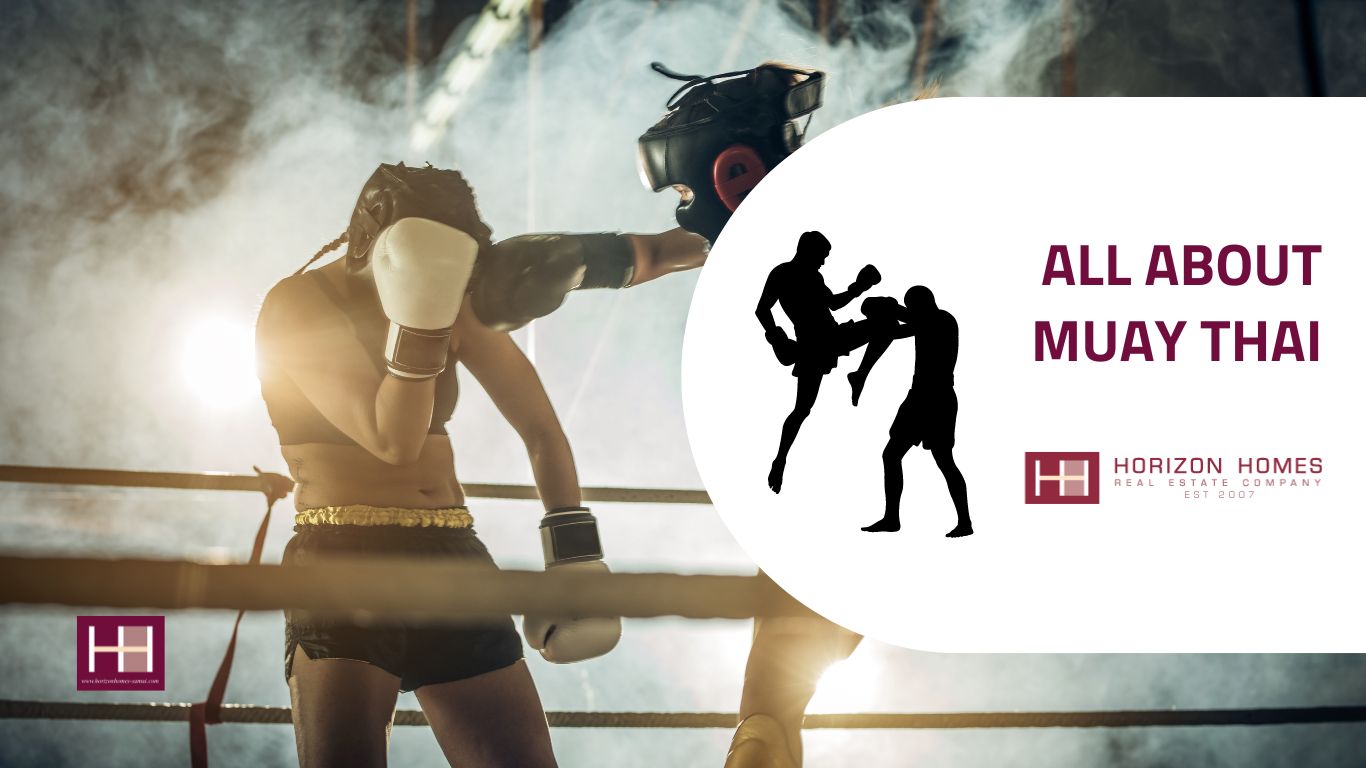Muay Thai, often referred to as “The Art of Eight Limbs,” is a traditional martial art and combat sport originating from Thailand, characterized by its use of punches, kicks, elbows, and knee strikes. Koh Samui, an island in Thailand, has emerged as a prominent hub for Muay Thai enthusiasts, offering numerous training camps set against stunning backdrops. The growing popularity of Muay Thai and Koh Samui is also intertwined with Thailand’s strategic use of soft power, attracting global visitors and investors. A significant pull for digital nomads and investors is the DTV (Digital Tourist Visa), which simplifies long-term stays in Thailand, enhancing the appeal of property investments in the region.
Key Takeaways:
- Muay Thai is a cultural icon in Thailand and draws global visitors.
- Koh Samui offers the perfect blend of training camps, lifestyle, and investment opportunities.
- The DTV Visa simplifies the process for long-term stays.
- Thailand’s soft power boosts tourism and real estate investments.
- The Rise of Muay Thai in Koh Samui
Origin of Muay Thai
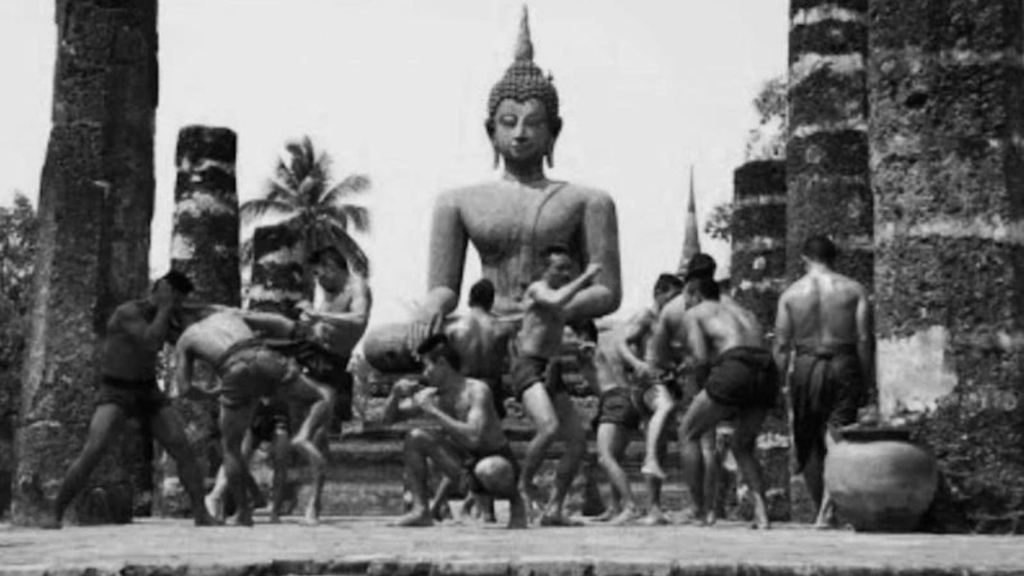
Historical records suggest that the sport developed as a practical combat technique for military training during the Sukhothai Kingdom in the 13th century, providing soldiers with essential skills for both warfare and self-defense. As it evolved, Muay Thai became not only a means of survival but also an integral part of Thai culture, incorporating religious ceremonies, music, and traditional rituals. Over time, Muay Thai transformed from a battlefield discipline into a popular sport, gaining global recognition for its effectiveness and artistry.
Legendary fighters such as Samart Payakaroon, known for his technical brilliance and agility, and Buakaw Banchamek, famed for his explosive power and international fame, have played significant roles in popularizing Muay Thai worldwide. These fighters, along with many others, have showcased the sport on the global stage, promoting its rich heritage and inspiring new generations of practitioners. Their contributions have helped to elevate Muay Thai from a traditional martial art to a celebrated sport recognized for its beauty, intensity, and cultural significance, making it a fascinating subject of study for both historians and martial arts aficionados alike.
Why is Koh Samui a Muay Thai Hotspot?
Koh Samui has become a leading destination for Muay Thai training due to its unique combination of world-class training facilities, beautiful landscapes, and a vibrant community of fighters and trainers. The PM also announced plans to promote Muay Thai as a soft power, emphasizing its integration with tourism. Specifically, destinations like Koh Samui and Phuket, which attract tourists interested in Thai boxing, have been identified for the promotion of training camps. The island hosts several high-profile Muay Thai camps that attract both beginners and professionals from around the globe. According to a KohPlanner article, the island’s popularity for Muay Thai is bolstered by the presence of international fighters competing alongside Thai fighters, creating an exciting and competitive environment.
Popular Muay Thai Camps in Koh Samui
Some of the most famous Muay Thai camps in Koh Samui include:
Lamai Muay Thai Camp
Known for its traditional training techniques and experienced trainers.
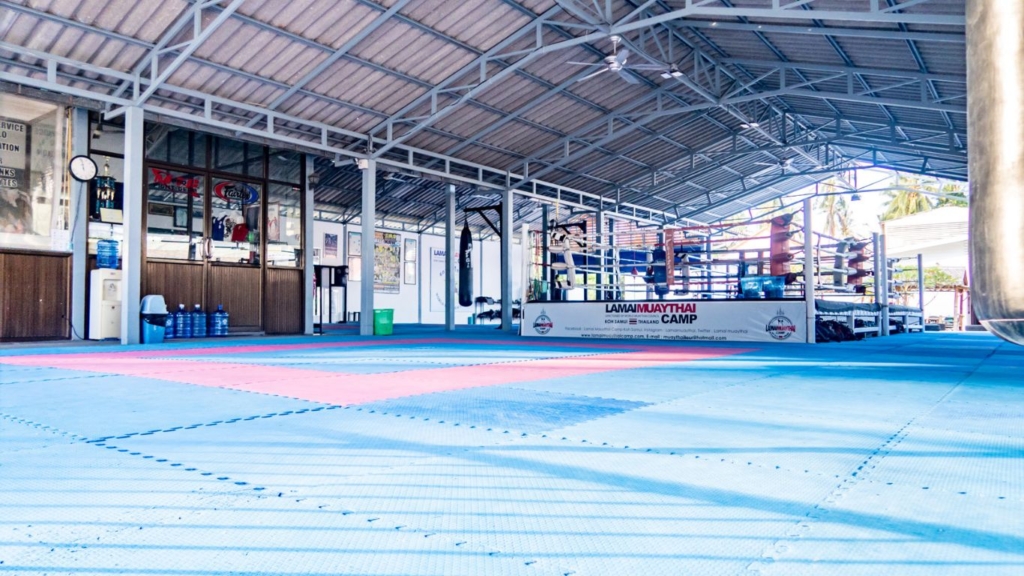
Superpro Samui
Offers comprehensive training programs and modern facilities
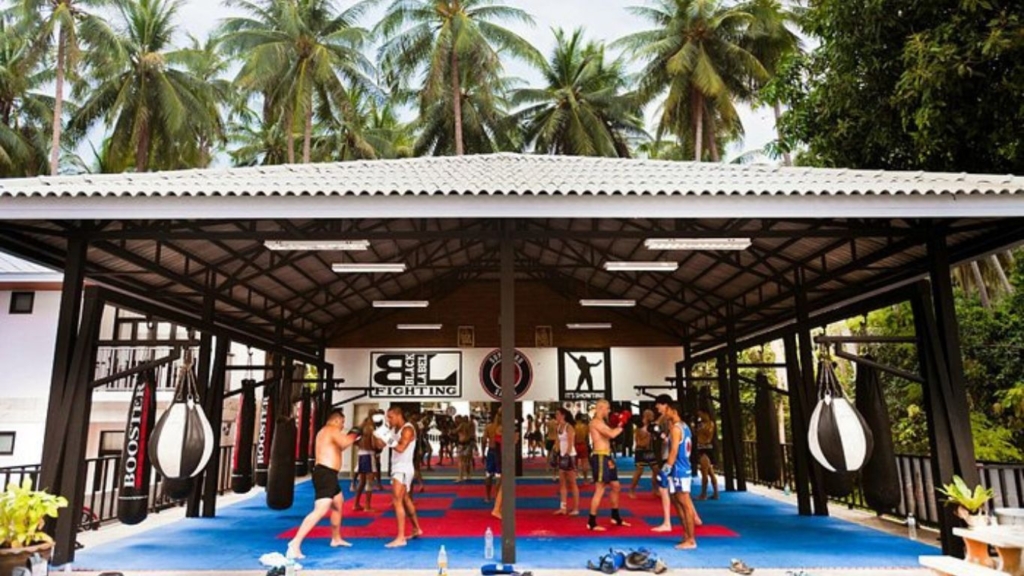
Yodyut Muay Thai
Renowned for its personalized training sessions.
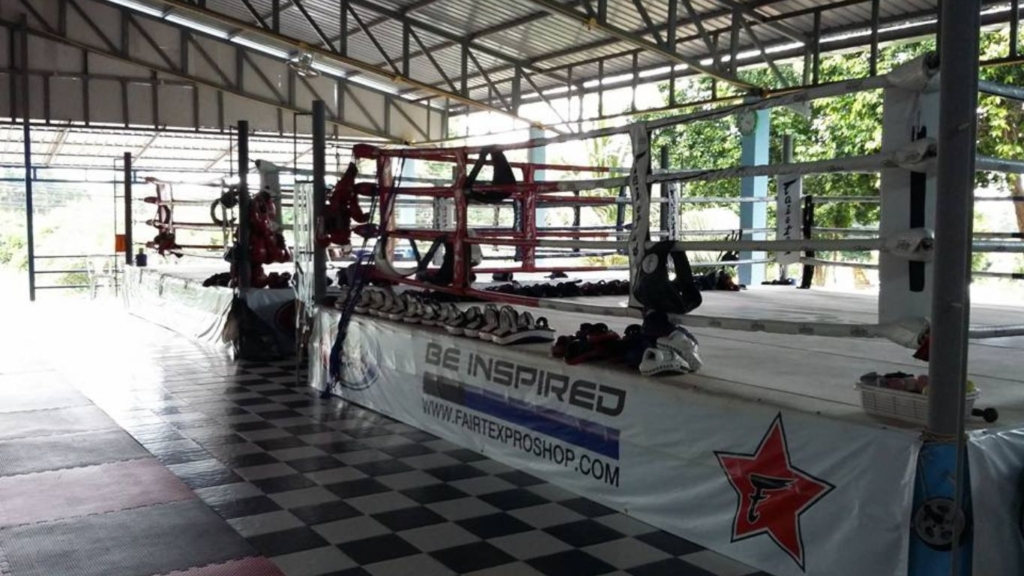
Training Experience and Culture
Training in Koh Samui is unique due to its picturesque beachfront gyms and the incorporation of traditional Muay Thai techniques. The experience is often described as holistic, combining physical training with cultural immersion, as noted by Southeast Asia Backpacker. Trainees can enjoy the serene island lifestyle while honing their skills in a supportive and inspiring environment.
What is the DTV Visa?
The DTV (Digital Tourist Visa) is a new visa category introduced by Thailand, aimed at digital nomads, remote workers, and investors. Starting from July 15, 2024, the Thai government has officially launched the Destination Thailand Visa (DTV Visa Thailand), allowing individuals to work and travel (“workcation”) in Thailand. This visa allows for extended stays, facilitating work and travel within the country.
Benefits of the DTV Visa for Digital Nomads and Investors
The DTV Visa is particularly appealing for digital nomads due to its longer stay options and streamlined application process. According to Lexology, the visa provides multiple entries over a five-year period, allowing holders to stay in Thailand for up to 180 days per entry.
About DTV Visa and Eligibility
To apply for the DTV Visa, applicants must:
- Visa Duration: 5-years.
- Visa Type: Multiple entry.
- Length of stay per entry is 180 days.
- Be at least 20 years old.
- Demonstrate financial capability (minimum savings of $13,500).
- Pay a visa fee of $270.
- Provide proof of remote work, freelance status or join any Thai soft power activities.
Thailand’s Soft Power Muay Thai
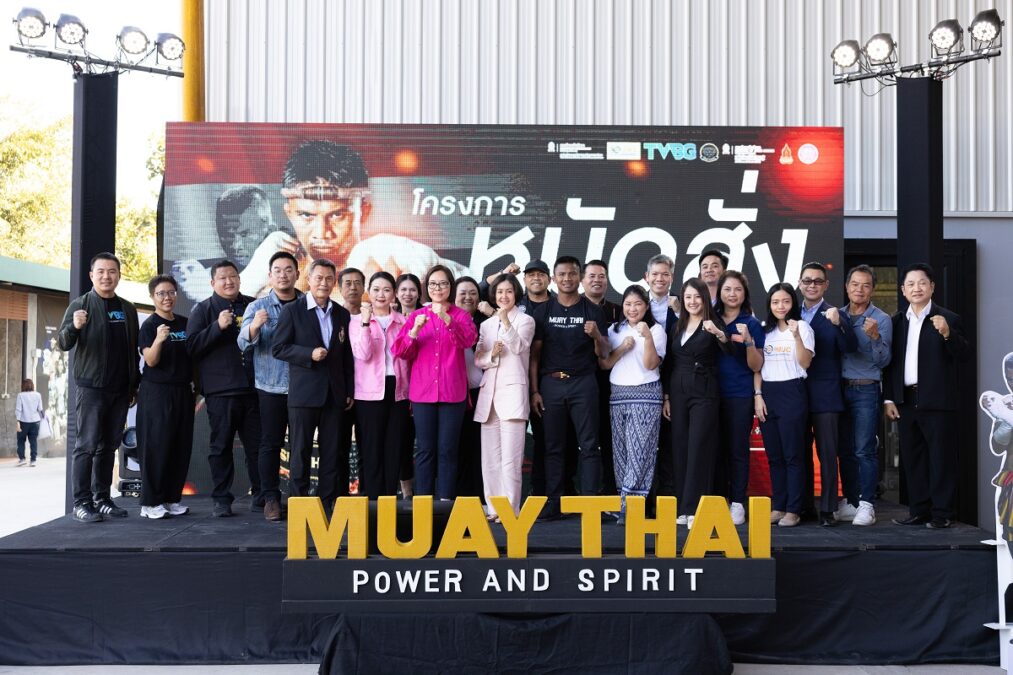
Soft power refers to a country’s ability to influence others through cultural or ideological means, rather than military force. Thailand has effectively leveraged its cultural assets, particularly Muay Thai, to attract international attention and foster positive global relations. On December 8 last year, Prime Minister Srettha Thavisin declared Muay Thai to be a leading soft power of Thailand with significant value and international recognition.
Muay Thai serves as a cultural ambassador for Thailand, showcasing its rich heritage and athletic prowess. Bangkok Post highlights that the government actively promotes Muay Thai as a key component of its soft power strategy, enhancing Thailand’s global image.
How the DTV Visa Supports Property Investment in Koh Samui?
Long-term visas like the DTV make it easier for investors to manage and enjoy their properties in Thailand. The extended stay options and multiple entries facilitate better property management and engagement with the local market. The ability to stay longer in Thailand opens up greater real estate opportunities. Investors can take the time to explore the market, make informed decisions, and oversee property developments or rentals directly.
Tips for Getting Started with Muay Thai and Property Investment in Koh Samui
Finding the Right Muay Thai Camp
Choosing the best training camp involves considering your skill level and training goals. It’s advisable to research different camps, read reviews, and perhaps visit a few before making a decision.
Navigating Property Investment Safely
Investing in Koh Samui’s property market can be highly rewarding, but it’s essential to understand local regulations and market conditions. Partnering with reliable professionals is crucial:
- Legal Advice: Work with legal experts to guide you through the complexities of property ownership.
- Reputable Real Estate Agents: Choose experienced agents who know the Koh Samui market inside out.
- Due Diligence: Conduct thorough checks to secure a great deal and avoid common pitfalls.
Tips: Horizon Homes specializes in helping investors navigate Koh Samui’s real estate landscape with confidence, offering expert advice and exclusive listings tailored to your needs. Browse Investment Opportunities.
Frequently asked Questions
Beginners should understand that Muay Thai is physically demanding and requires commitment to improve stamina, strength, and technique. It’s important to start with the basics: learning proper stance, basic strikes (punches, kicks, elbows, knees), and defensive movements. Beginners should focus on building fitness levels and flexibility before advancing to more complex techniques. Finding the right gym with supportive trainers who can guide newcomers through proper form and safety practices is crucial. Proper gear, such as hand wraps, gloves, and shin guards, is also essential to prevent injuries as you start your Muay Thai journey.
Muay Thai is distinct from other martial arts like Kickboxing and Karate due to its use of elbows, knees, clinching techniques, and the emphasis on powerful strikes using the entire body. Unlike Kickboxing, which primarily focuses on punches and kicks, Muay Thai utilizes eight points of contact and incorporates clinch fighting as a crucial element. Compared to Karate, Muay Thai is less about forms and more about practical, continuous striking, with a stronger focus on endurance, power, and real-world applicability.
Muay Thai is a traditional martial art and combat sport from Thailand known for its dynamic and powerful techniques using punches, kicks, elbows, and knee strikes. It’s called “The Art of Eight Limbs” because practitioners utilize eight points of contact (two fists, two elbows, two knees, and two feet) to strike their opponents, making it a highly versatile and effective form of combat.
The DTV (Digital Tourist Visa) is a new visa category introduced by Thailand, specifically aimed at digital nomads, remote workers, and investors. It allows for extended stays with multiple entries over five years, making it easier for Muay Thai enthusiasts and investors to live, train, or manage property investments in Thailand. The visa simplifies long-term stays and enhances the appeal of living and investing in places like Koh Samui.
Thailand’s soft power strategy leverages Muay Thai as a cultural ambassador to attract international attention and promote tourism. By showcasing its rich heritage and athletic prowess, Muay Thai draws global visitors and enhances Thailand’s image as a cultural destination. This strategy not only boosts tourism but also stimulates real estate investments, particularly in popular Muay Thai destinations like Koh Samui.
Muay Thai offers numerous physical and mental benefits, making it popular worldwide. Physically, it provides a full-body workout that enhances strength, endurance, flexibility, and cardiovascular health. It helps build muscle tone, improve coordination, and burn a significant number of calories, making it great for weight loss. Mentally, Muay Thai boosts self-confidence, discipline, and mental resilience. It’s an excellent stress reliever, promoting mental clarity and focus through rigorous training. Additionally, Muay Thai teaches self-defense skills, instilling a sense of empowerment and personal safety. The community aspect also fosters social connections, support, and camaraderie among practitioners.
Conclusion
Muay Thai, Koh Samui, and the DTV Visa collectively enhance Thailand’s appeal as a premier destination for both tourists and investors. As Muay Thai continues to thrive on the global stage, it serves not only as a sport but also as a powerful symbol of Thai culture, drawing enthusiasts from all corners of the world. Koh Samui’s unique blend of top-tier training camps, stunning landscapes, and investment opportunities make it a perfect choice for those seeking both physical challenges and lifestyle benefits.
The introduction of the DTV Visa further strengthens this appeal, simplifying long-term stays for digital nomads, remote workers, and investors who wish to immerse themselves in the vibrant culture of Thailand. Coupled with the country’s strategic use of soft power, these factors create a compelling environment for tourism, real estate investment, and cultural exchange. As Muay Thai continues to evolve and captivate audiences worldwide, its influence extends far beyond the ring, making Thailand not just a destination but a thriving hub of opportunity, tradition, and community.

